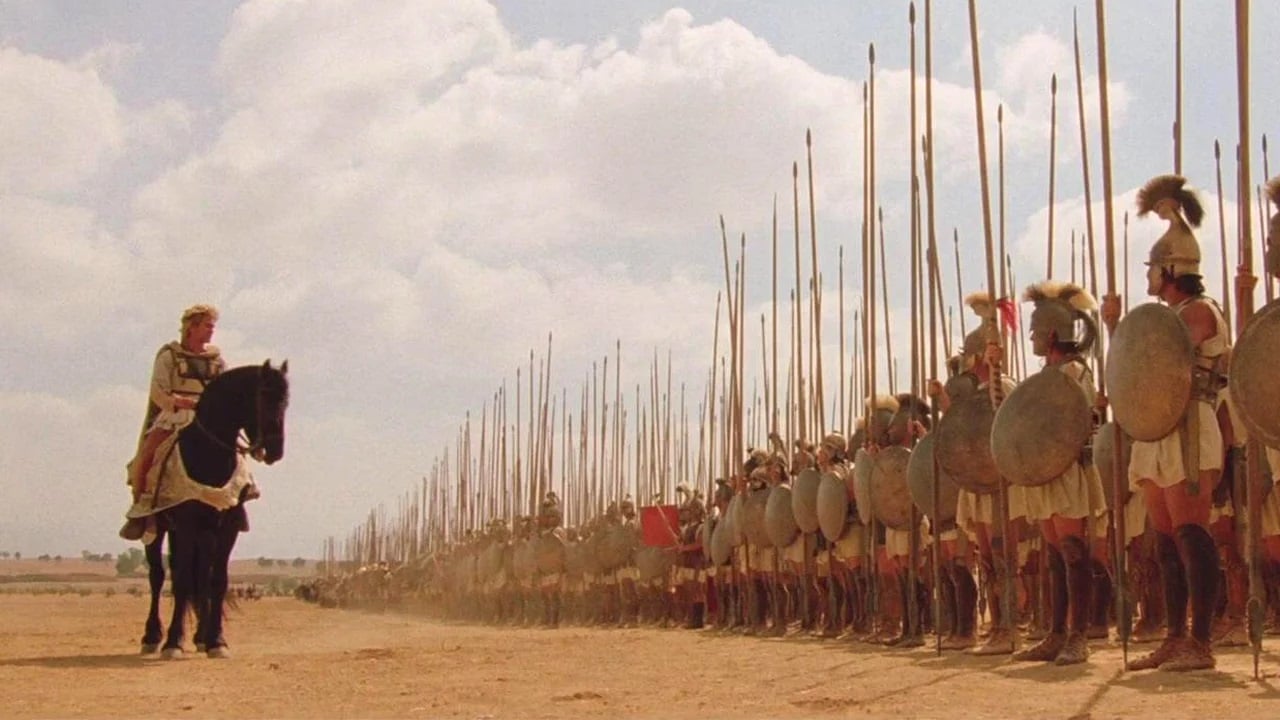Not only were critics disappointed with “Alexander”, the historical epic also proved to be a flop at the box office. FILMSTARTS editor Pascal Reis, however, warmly recommends the film – but only in the overly long final cut.
Not always, but more and more often, extended versions released after the fact can ensure that a film that received mixed reactions in the cinema shines in new splendor. The prime example of this is still Ridley Scott’s groundbreaking crusade epic “Kingdom of Heaven”. While the cinema version can be described as extremely solid, the director’s cut of the historical spectacle is actually one of the best works by the “Blade Runner” maker.
A very similar case occurs with “Alexander” by cult provocateur Oliver Stone (“Natural Born Killers”). The story of the legendary conqueror was mercilessly thrashed in the cinema, which is of course also due to the rather weak press coverage. In the final cut, however, which is almost 30 minutes longer, the qualities of the film are very clearly revealed – and these are not based exclusively on the enormous visual power of the production, which cost more than 150 million US dollars.
You didn’t like “Alexander” back then and you’ve only seen the film in the cinema version (or not at all)? Then check out the final cut, which you can currently stream for a fee on Amazon Prime Video:
“Alexander” in the final cut on Amazon Prime Video*
That’s what “Alexander” is about
In 300 BC, the young Macedonian King Alexander (Colin Farrell) set out with the Greek army to bring the feared Persian Empire to its knees. In a campaign lasting eight years, his troops advanced as far as India and Egypt, laying the foundation for the spread of Greek culture and the later triumph of the Roman Empire.
Alexander was strongly influenced in his childhood. His Macedonian parents offered him protection, but his father Philip (Val Kilmer) and mother Olympias (Angelina Jolie) were constantly at war with each other. The king was a cunning warlord and a rough, uncouth drunkard who despised his wife. As a result, he became increasingly estranged from his son. Alexander eventually rebelled against his father and murdered him at the age of 20 in order to be declared heir to the throne.
An impressive epic
It is a very complicated task to view Alexander the Great today as a human being rather than as a mythologized figure. But even during his lifetime, the general who commanded an army of over 100,000 men was a legend. However, Oliver Stone is not interested in pure heroic glorification here; instead, he wants to show that people are at their loneliest when they are surrounded by myths.
“Alexander” is not about historical accuracy, which should only be expected of a feature film to a limited extent anyway. Instead, the whole thing is – like most of Oliver Stone’s works – a character study. In this case, it is even a particularly subtle one, which unfolds in both breadth and depth. Because although the visual expectations of a monumental film in terms of lavish setting, impressive landscape shots and imposing crowd and battle scenes are effortlessly fulfilled, “Alexander” is essentially not a powerful film, but a gentle one.
Oliver Stone wants to look behind the all-powerful facade of the young conqueror and finds a vulnerable man, longing for love, whose tragedy was to become a legend. But all the military and tactical feats are not able to conceal his true nature. In his flawedness and fragility, Alexander, played by Colin Farrell (“The Banshees Of Inisherin”), is a special figure, especially in modern historical cinema. And not only because his soft facial features contradict the classic, super-straight hero iconography.
Do you like even more epic cinema? Then we have another streaming tip for you:
Streaming tip: A visually stunning desert adventure with Heath Ledger – much better than its reputation!
This article is based on an article that already appeared on FILMSTARTS.
*The link to the Amazon offer is a so-called affiliate link. If you make a purchase via this link, we receive a commission.


